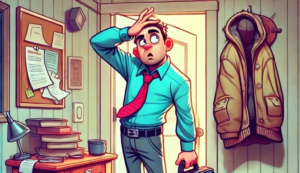
September is Suicide Awareness Month, an important time to reflect on mental health, especially within the neurodivergent community. When it comes to neurodiversity and suicide awareness, understanding the connection between neurodivergent conditions like ADHD and Autism and the increased risk of mental health challenges is critical. For those in the neurodivergent community—people living with conditions like autism, ADHD, dyslexia, and others—the risk of mental health challenges like depression, anxiety, and, tragically, suicidal thoughts is often higher. While these are tough topics, they’re vital conversations that help raise awareness, support mental health, and remind us that seeking help is a sign of strength.
Understanding Neurodiversity and Suicide Awareness
Research shows that neurodivergent individuals face a greater risk of mental health struggles. For instance, the National Autistic Society highlights that people with autism are up to nine times more likely to die by suicide than the general population. Similarly, a study from the Centers for Disease Control and Prevention (CDC) reveals that adults with ADHD are four times more likely to attempt suicide than those without ADHD.
Why does this happen? Many neurodivergent individuals experience overwhelming stress from societal pressures, sensory processing difficulties, or the emotional toll of masking their true selves to “fit in.” Over time, this stress can lead to feelings of isolation, burnout, and hopelessness.
But here’s the good news: knowledge is power. Understanding your neurodivergence can be a powerful step toward self-acceptance and mental wellness. And with the right support system and resources, these challenges can become opportunities for growth and empowerment.
The Mental Health Challenges Facing Neurodivergent Individuals
Understanding neurodiversity and suicide awareness is essential in promoting mental wellness within our community. Neurodivergent individuals are often misunderstood or overlooked when it comes to mental health. The exhaustion of constantly trying to fit into a world that wasn’t designed with them in mind can feel unbearable. That’s why suicide prevention in this community goes beyond raising alarms—it’s about creating a culture where we embrace neurodiversity and have more open, compassionate conversations.
If you or someone you know is struggling, reaching out for help is a courageous first step. From neurodivergent-friendly therapists to supportive groups, there are resources available that understand your unique challenges. Check out our resources on Neuro-Empowerment, where we offer community and guidance for embracing neurodivergence and seeking support.
Empowerment Through Understanding Neurodiversity
Instead of focusing only on risks, let’s talk about empowerment. Embracing your neurodivergence is one of the most powerful ways to thrive. Tools like therapy, coaching, journaling, and community support can help you nurture your mental health and tap into your strengths. By increasing neurodiversity and suicide awareness, we can create supportive environments for everyone to thrive.
At Neuro-Empowerment, we offer support tools, articles, and events to help neurodivergent individuals connect, grow, and thrive. You are never alone, and your journey toward mental wellness starts with understanding and accepting your unique self.
You Are Not Alone: Reach Out for Support
If this message resonates with you, remember: you are not alone. Many people understand and are here to help. For immediate support, reach out to:
- National Suicide Prevention Lifeline: Dial 988
- Crisis Text Line: Text HOME to 741741
And don’t forget, finding strength in your differences starts with connecting with those who understand. Explore our resources at Neuro-Empowerment for more ways to nurture your mental health and connect with a supportive community.
Additional Resources
Internal Links:
- Neurodivergent-Friendly Coaching Service
- Upcoming Neuro-Empowerment Community Events
- Neurodivergent Empowerment Toolbox
External Links:
- National Suicide Prevention Lifeline: Call 988 for immediate help.
- Crisis Text Line: Text HOME to 741741 for support.
- CDC: ADHD and Suicide Risk Study







